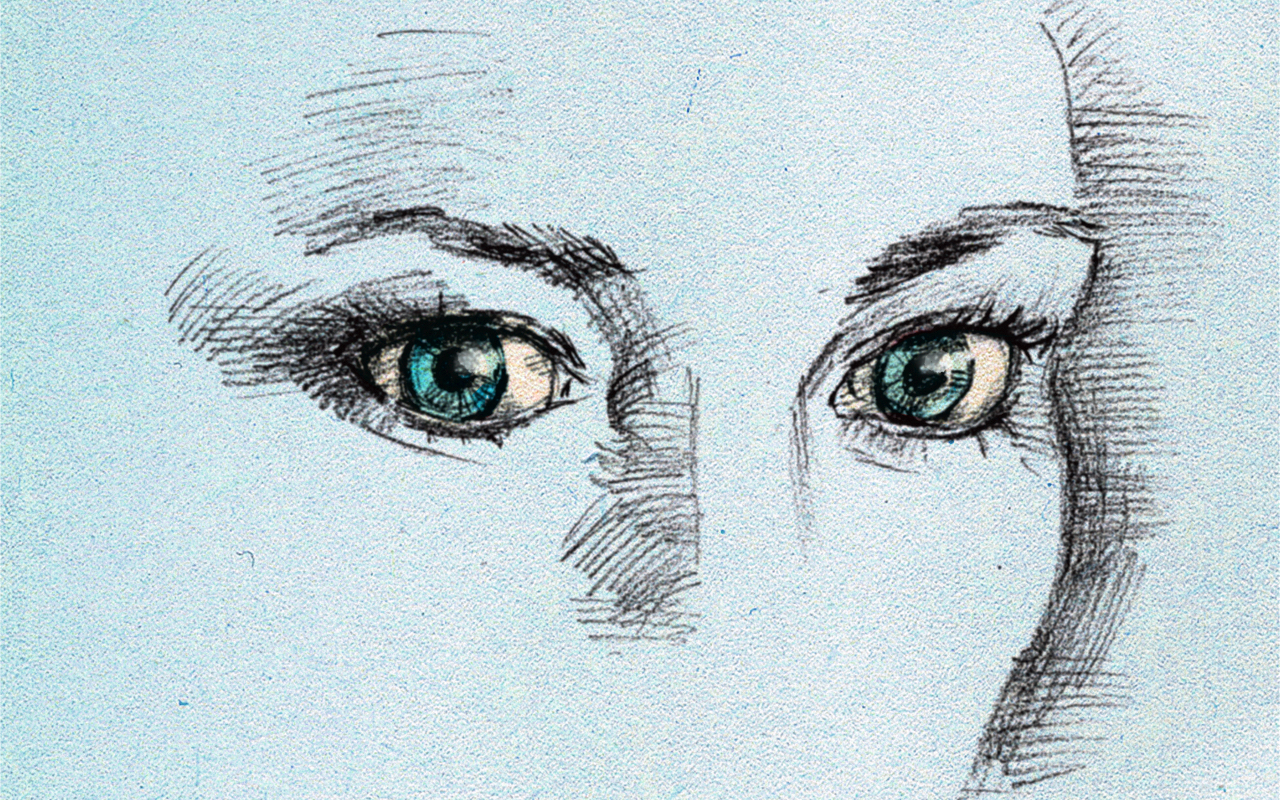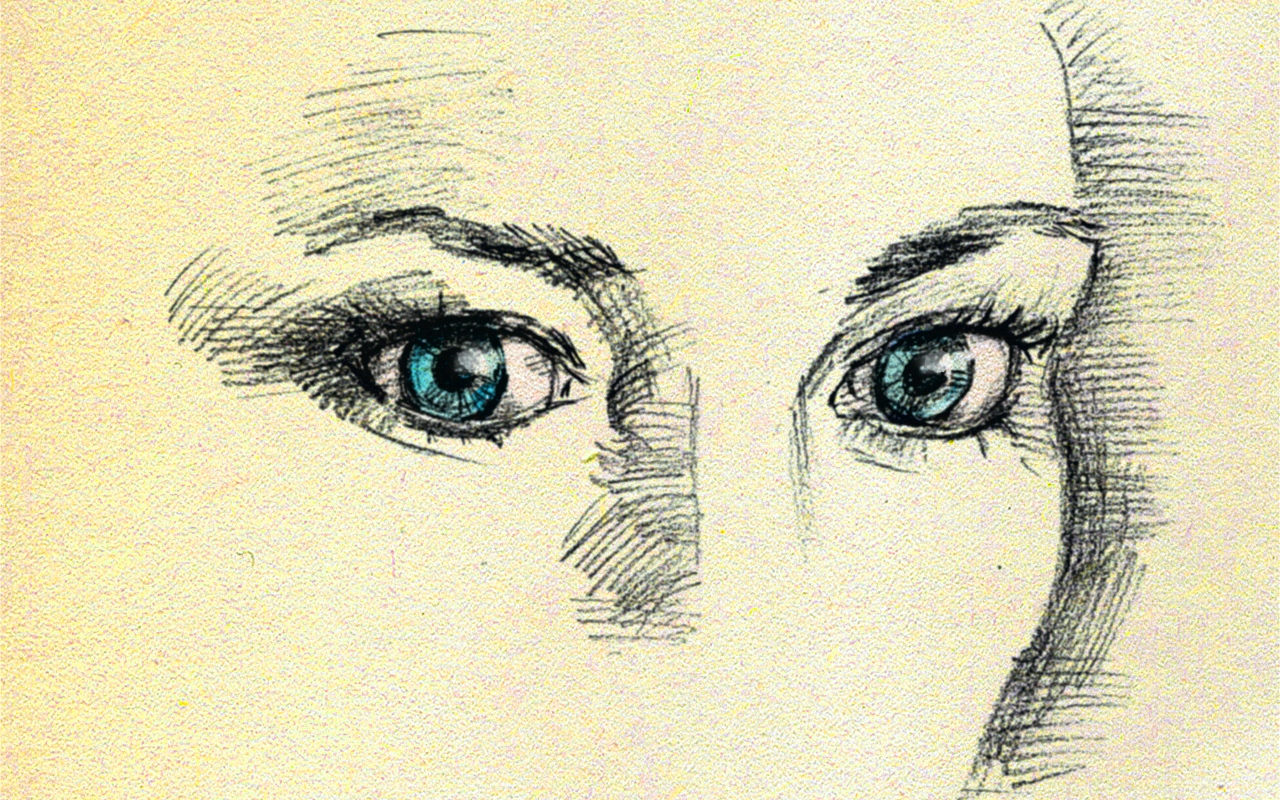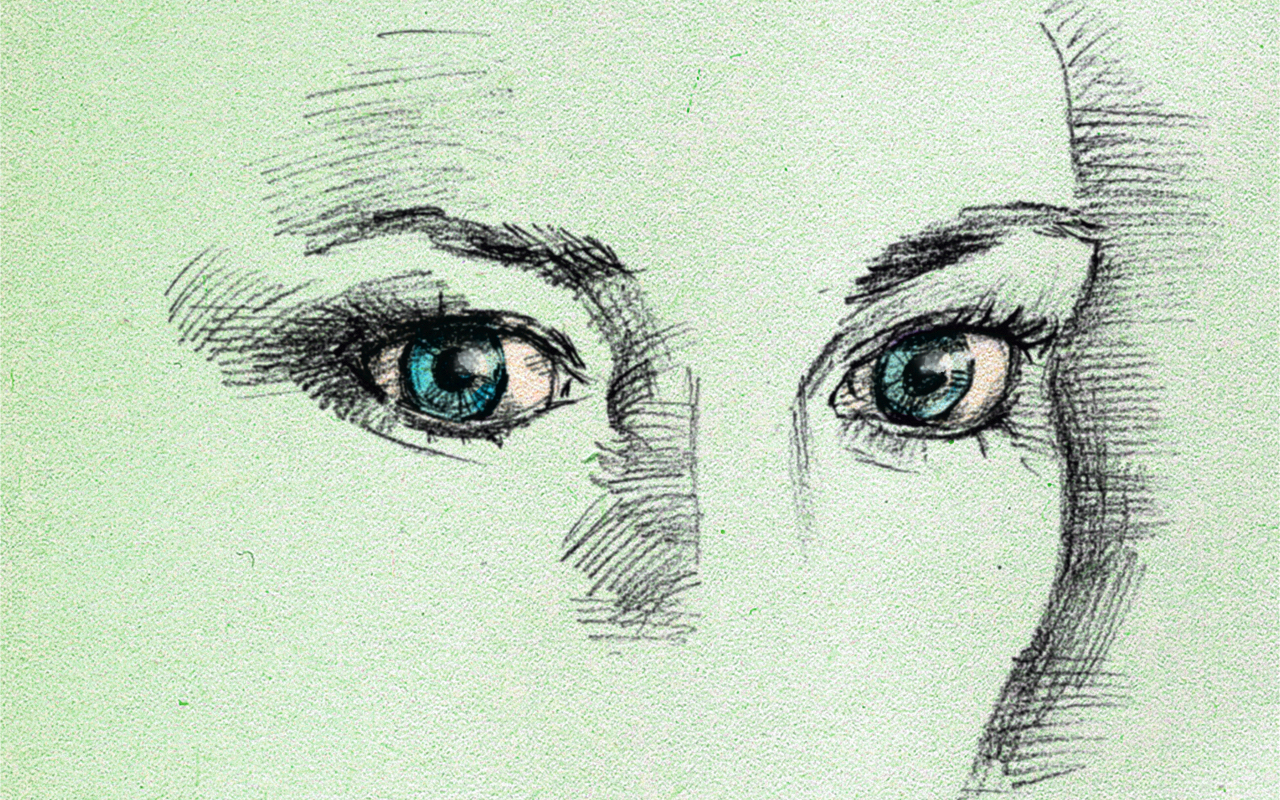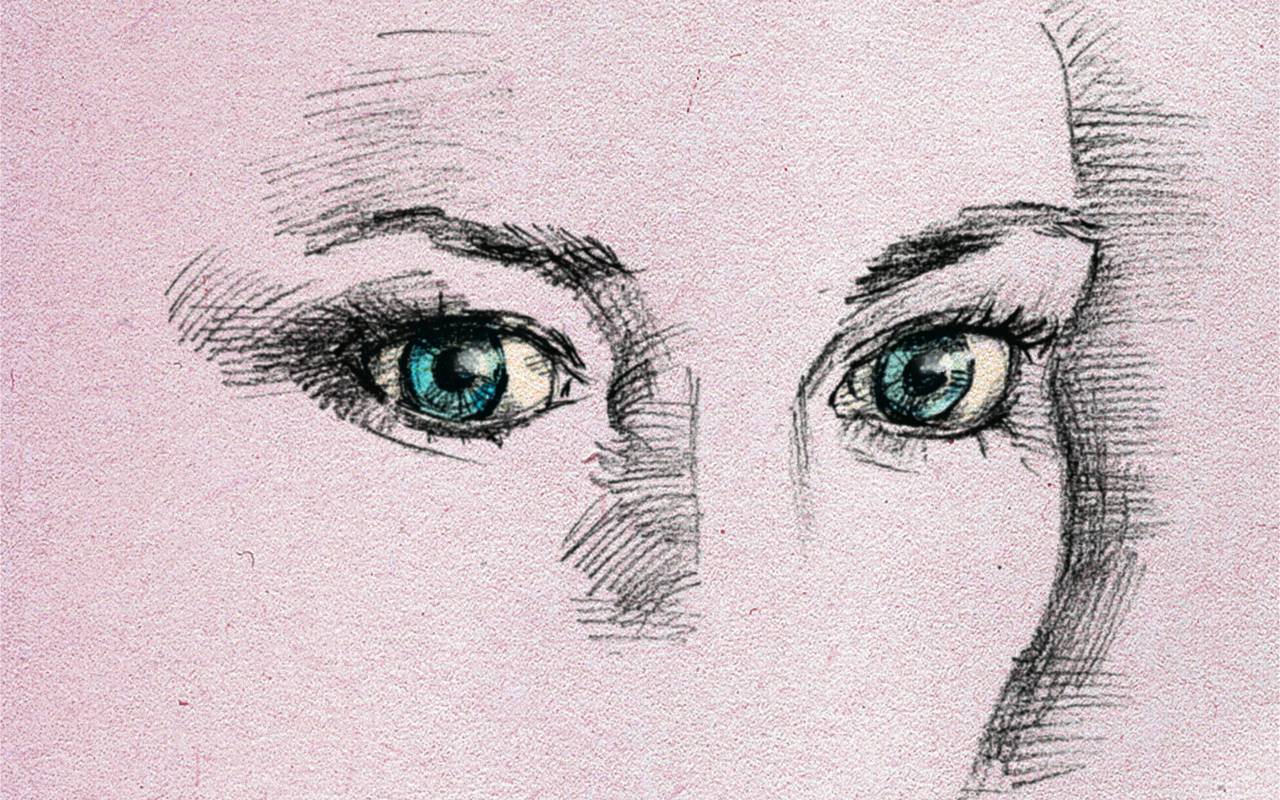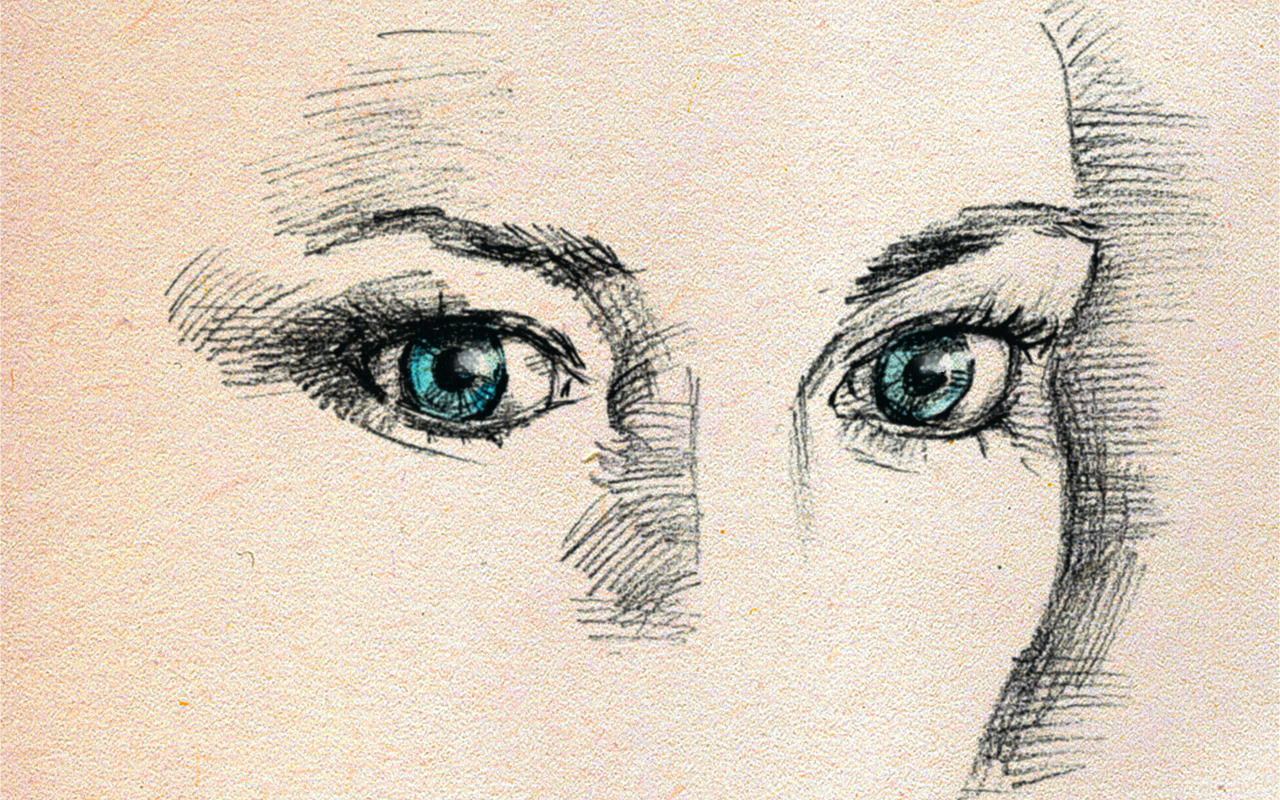In the Grimm Brothers’ version of Cinderella (quotes from their story are underlined), her mother dies in the first sentence and by the end of the first paragraph has been replaced by an evil stepmother. Their Cinderella is an innocent, beautiful girl who suffers at the hands of a wicked older woman and bad-tempered, avaricious stepsisters. They mock her and force her to do all the unpaid labour of running a large household. Even the name her mother gave her is erased and replaced with a sneer: she always looked dusty and dirty, they called her Cinderella.
Her only option for escape comes when the King holds a three-day festival to which all the beautiful young girls in the country were invited, in order that his son might choose himself a bride.
Cinderella, who has no friends or family other than her neglectful father and cruel step-family, goes to her mother’s grave to ask for help. There is no fairy godmother, but magic birds bring her beautiful dresses that transform her from a dirty servant into a beautiful woman. This transformation was as much about class as it was about beauty. Poverty was dirty, shameful, and difficult to escape. Rich gowns appearing by magic were Cinderella’s passport to wealth because not even a beautiful and pure young girl could find a Handsome Prince if she remained poor.
She goes to the festival, the Handsome Prince falls instantly in love with her, and will not let her dance with anyone else. When she wants to leave, he says, “I will go with you and bear you company,” for he wished to see to whom the beautiful maiden belonged.
The first two nights of the festival she dances with him and then runs away. On the last night he is determined to find her despite her obvious wishes (clearly, she’s just playing hard to get). He pours sticky pitch on the steps, and she leaves a shoe stuck to it as she escapes. The Handsome Prince then makes all the women in the town try on the shoe because his bride must prove her perfection and he cannot recognise Cinderella simply by looking at her.
At their mother’s bidding, Cinderella’s stepsisters take a knife and cut off their toes and heels to fit their big feet into the cast-off shoe. Disgusted by their blood, the Handsome Prince rejects them. He asks Cinderella’s father if he has any other daughters, and the father replies, “There is still a little stunted kitchen-wench which my late wife left behind, but she cannot possibly be the bride.”
Despite her father’s denial that she is his daughter or a suitable bride for a Prince, the shoe fits and the Handsome Prince declares that he has found his true bride. At the wedding, the magic birds tear out the stepsisters’ eyes and the story ends.
I couldn’t stick to this original plot, where a pure young girl is rescued from drudgery and the jealousy of other women by being so pretty and passive that even Handsome Prince will marry her. So, I gave her Disney’s Fairy Godmother, the traditional three wishes, and a feminist’s desire to make the world a better place…
Once upon a time there was a very rich man. As is the habit of rich men, he had a beautiful wife. And he also had a daughter. When the daughter was almost grown, the wife became sick and feeling that her end was near, she called her daughter to her and said, “Dear child, be good and pious, and then the good God will always protect you, and I will look down on you from heaven and be near you.” Then she closed her eyes and died, as mothers always do in fairy tales.
The girl was grief stricken. Every day she went to her mother’s grave and lay down on it to cry. She did her best to be good and pious, but the rich man who was her father did not notice her and the God her mother said was good did not protect her.
Even rich men cannot stand to be alone, so he found another beautiful woman and she agreed to be his wife because she had two daughter and no choices. The rich man knew that four women in his house, even if they have no choices of their own, can be powerful if they band together, so taught his new wife and stepdaughters to disdain his oldest child.
He took all the nice clothes and pretty things from the oldest daughter and gave them to his stepdaughters, making sure they knew he could do the same to them if they displeased him. He mocked and bullied the daughter of his first wife and rewarded the second wife and her daughter when they did the same. The new wife and her daughters, who had no choices, sadly colluded in his abuse.
The oldest daughter had to do hard work from morning till night, get up before daybreak, carry water, light fires, cook and wash. Besides this, the sisters did her every imaginable injury.
At night she slept on the floor in front of the kitchen fire. Her father laughed about the ash stains and cinder burns on her skin and told everyone to call her Cinderella. Sad and scared, the new wife and stepdaughters obeyed him and prayed every night that he would not turn his rage upon them.
On her eighteenth birthday Cinderella returned to her mother’s grave and lay down to cry again. “I miss you so much,” she sobbed. “I tried to do what you said, I tried to be good and pious, I waited for God to protect me. Where is God? Where are you? How can I escape this horrible man who is supposed to love me and care for me? Why can’t my stepmother love me? I wish, oh how I wish everything could be different.”
Great heaving sobs hurt her body and made her head ache but no matter how much she cried and prayed and wished, God did not answer, and her mother was still dead.
Cinderella lay on the grave until her sobbing slowly eased and the exhausted hopelessness that comes after crying with no relief set in. “What do I do now?” she said despairingly.
“Well, you should start by wiping all the snot off your face,” answered a clear voice above her. Cinderella sat up with a start and stared in wonder at the fairy sitting on her mother’s gravestone.
“Who are you?” she asked in amazement.
“I’m your fairy godmother, of course” answered the fairy. “Abused girls who lie sobbing on their mother’s grave are usually left to cry alone, but this is a fairy tale, so, here I am. Now, get up, you’re a mess. Let’s get you cleaned up and we’ll talk about what I can do for you.”
The Fairy Godmother bounced down from her perch on the gravestone and helped Cinderella to her feet. She brushed the dirt from her clothes, wiped her face clean and gave her a hug.
“There, that’s a bit better. Now, let’s go somewhere a bit warmer. We’re not going to solve anything standing in a graveyard.” She put her arm around Cinderella, waved her wand, and suddenly the two of them were sitting on comfortable chairs in a warm room.
“Tea?” she asked. Cinderella nodded, still too befuddled to speak and watched with wide eyes as the Fairy Godmother waved her wand again and poured two cups from the teapot that winked into being on the table.
“Ok, now, let’s get you sorted. This is a fairy tale, so get comfortable with suspending disbelief. I’m here to grant you three wishes. Anything you want. Silk dresses? Everlasting beauty? Drop three dress sizes in under a minute? I can give you all the things that make women happy.”
Cinderella sipped her tea and suspended her disbelief. “Anything? Anything at all?”
“Yep, and if you word it right, you can get yourself a whole room full of shoes on one wish. It’s all about clarity. You can’t ask for something unless you can articulate it properly, so take a minute to think about how you word it.”
“What if I want something really special?”
“Hah! You want love? A Handsome Prince to whisk you away from all of this and live happily ever after in a great big castle? Easy! I’ve been doing that for centuries.”
Cinderella snorted. “A Handsome Prince? Another man who’s going to want me to wash his clothes and clean his mess and shore up his ego. What a waste of a wish. No, I want something much better than that.”
The Fairy Godmother grinned. “Something better than a Handsome Prince? The world is full of such things, all to be had for the wishing of them. What is it you want?” She twirled her wand merrily.
Cinderella sat up straighter in her chair. “My name is not Cinderella. My father called me that when I was burned by the cinders where he made me sleep, but it’s not my name. My mother called me Anvika.”
The Fairy Godmother lowered her wand and looked disgusted. “I’m sorry, Anvika. Your father sounds like a right cunt. And if we’re having names like we’re actual people instead of clichés, my name is Joan.”
“Joan the fairy godmother? Seriously?” Joan nodded and grinned happily.
“Alright then,” Anvika took a firm grip on her suspended disbelief and ploughed on. “So, Joan, if I asked, you could give me world peace?”
“Oh, yes. We might have put a whole lot of expectations on your wishes but there’s no limits. Anything you want.”
Anvika nodded thoughtfully. “Well, we definitely could do with some peace, but as you say, it’s all in how you word it, isn’t it?”
“Yeah, that’s always the tricky bit. I mean, you could wish for world peace, but what happens to the world after you die? Or you could wish that everyone in the world had no hands so they could never shoot a gun again, but it wouldn’t take long before someone worked out how to do voice activated shooting and nothing would really change. Words matter. Be careful what you wish for.”
They sat quietly for a while, the abused girl and the Fairy Godmother who were actually people with names and complex lives. Anvika frowned as she thought her way through the tangle of things she wanted. She pictured her father, so afraid of women that he had to force them to hate each other. Her stepmother who had no choices and her stepsisters who were too scared to be kind. She remembered her mother, who loved her so much and how as she lay dying all she could do was cling to the belief that being good and believing in God would be enough to keep her daughter safe.
“It’s all a bit fucked, isn’t it?” she said to Joan. “It is indeed,” Joan replied, because she was a magical Fairy Godmother and knew what Anvika was thinking without being told.
“Alright, I think I’ve got it.” Anvika ran through the wishes in her head one last time, adjusting the wording and thinking through the consequences. Joan picked up her wand and waited.
“I wish every girl and woman in the world had the same access to wealth that men have always had.”
“Done!” Joan waved her wand.
“I wish every girl and woman in the world always had the same access to power that men have always had.”
“Done!” Joan waved her wand again.
“I wish that no man or boy ever could or ever will be able to use violence of any kind against any person.”
“And done!” Joan waved her wand a final time and said, “Oh, this is going to be fucking hilarious!” She lay back in her chair and laughed until she cried.
Anvika laughed too. “Can we go see what’s happening?” she asked eagerly. “Do you think it will be very different?”
Joan was still laughing. “Different? It’s going to be utterly unrecognisable. Come on, let’s go have a look.”
She took Anvika ’s hand and raced out with her to look at a world where men had the same power and wealth as women and could never ever be violent.
They walked through Anvika’s village. It was night but the streets were full of people. Women were everywhere. Walking at night on their own, striding along confidently past men who did not look at them or call out to them or interrupt them. Children played happy night-time games on the street and ran to safe homes to be greeted by mothers who had birthed them by choice and could afford to feed them well and care for them properly.
Men stood in groups, looking pleadingly at each other but saying very little. Anvika watched the men as they stood uneasily together.
“Will they be ok?” she asked.
Joan rolled her eyes. “Of course they will. It will take them a bit of time, but they’ll get used to it. They’re just feeling a bit lost right now. They don’t know how to live in a world without their power and wealth and violence, but they’ll work it out and be much happier for it.”
A group of little boys ran past them, shouting and laughing as they chased each other. One fell down and the others stopped to pick him up and make sure he wasn’t hurt.
“See?” Joan said as they watched the boys hug the one who fell, “They’ll be fine. Do you want to go home and see your father?”
“Um, I guess so.” Anvika said nervously.
They kept walking down the busy street. Shops were open everywhere, wide open windows displaying beautifully arranged food and warm, comfortable clothes with lots of pockets.
A little girl ran past and snatched an apple from a stall. A woman ran after her with a broom and smacked it out of her hands. “Little thief,” she cried, “How dare you?” and she whacked the little girl with the broom.
“Oh,” said Anvika, “I didn’t think of that.”
“I know,” Joan replied. “Women are not all lovely angels, born only to nurture and care. And what about the queers? Didn’t think about them at all did you?”
“Oh, but… I mean… I’m sorry…” stammered Anvika.
“Too late now. And don’t apologise to me hoping for absolution. What do you think I am? Some plot device written in to cover up your straight lady bias? Pfft. Suck it up princess. You’ve had your wishes and now you’ll have to live with the consequences. Come on, we’re nearly there.”
Want more? Read more extracts here or buy your copy now ($24.99 – including postage within Australia).

